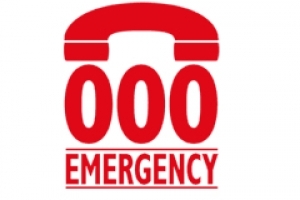
Medical shock is caused by not having enough blood circulating around your body. Reduced blood pressure decreases the flow of oxygen to vital organs and, unless attended to, is a life-threatening medical emergency.
Some of the many causes of medical shock include uncontrolled bleeding, severe burns, dehydration, being crushed under heavy objects, and spinal injury. A range of factors influences the impact of shock, such as your health, age, personality, where on the body the injury occurs and the environment. Signs of medical shock may include clammy skin, shallow or difficult breathing, rapid or irregular heartbeat, anxiety, thirst, dizziness, nausea and confusion.
Shock can be particularly life threatening on farms where you may be a long way from help or emergency medical facilities. It is very important that everyone on the farm knows where you are going to be and when you will return. If you are working on your own on a farm, arrange a system of notifying a family member, colleague or neighbour about where you will be and commit to checking in by a certain time each day. It is also important for everyone on the farm to have some first aid training. If someone suffers a major injury, you must send for help and then try to stop any bleeding or treat wounds and burns.
Emotional distress or sudden fright in response to a traumatic event is also often called ‘shock’ but this is different from physical shock. More information about emotional shock can be found here: Better Health Channel – Trauma reaction and recovery.
Fast facts:
- Medical shock is when there is not enough blood circulating around the body.
- Shock is potentially fatal, making it a medical emergency.
- If you think someone is suffering from medical shock, ring an ambulance immediately and give first aid.
References used for this topic
More information:
Better Health Channel
Shock
Cinahl Information Systems
Sepsis and Septic Shock
St John Ambulance NSW
Shock – managing shock
Clinical care:
Emergency Medicine and Trauma
Resuscitation in Hypovolaemic Shock
Emergency Medicine Practice
Diagnosis and management of shock in the emergency department
Queensland Ambulance
Clinical Practice Guidelines: Trauma/Hypovolaemic shock
|
|